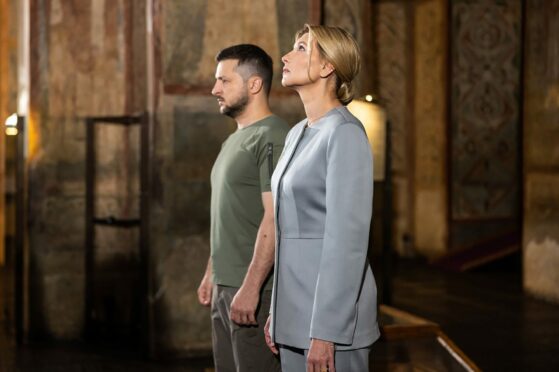
Try as we might not to start the New Year with a hangover, the fact is that we’ll begin 2023 battling hangovers from not only the year just past but from years gone by as Covid, the cost of living crisis and the Ukraine war shape its early months.
Happily for the majority of us in the UK, the most acute effects of the pandemic are now in the rear-view mirror, thanks to the brilliance of the scientists and the dedication of our NHS staff.
In China in 2023, the post-pandemic path looks a lot more uncertain.
Newly reappointed President Xi Jinping has responded to riots opposing his brutal lockdowns and surveillance of the “zero Covid” policy by relaxing restrictions. The public protests showed the weariness of the Chinese people but the vast 1.4 billion population is still largely unvaccinated.
Even now Xi doesn’t want to buy western vaccines. Opening up society would be good for China’s economy and therefore the world’s, but only if there is not a significant resurgence of the virus. How China responds economically will also affect attempts everywhere to tackle the cost of living crisis and get a hold on inflation.
Earlier this year I met US Treasury Secretary Janet Yellen in Washington and it was clear she is determined to tackle rising prices, but to do that across the world means in 2023 major economies will go into recession as their central banks raise interest rates.
Economists are predicting a mild recession in the US but a more brutal recession in Europe. That’s partly because energy prices remain sky-high in Europe, exacerbated by Putin’s invasion of Ukraine.
Here in the UK, 2023 will see the government’s support with energy bills become less generous. Those with larger families or difficult-to-heat homes will be hit hardest. Almost a quarter of households face bills of more than £4,000. So, what happens in the Ukraine conflict really matters to us all. Energy bills, food prices, inflation and mortgage rates are all in part affected by the course of the war.
After the Russian invasion I travelled into Kyiv as a guest of President Volodymyr Zelensky’s government and saw for myself not only the horror of the mass graves in Bucha but the courage and determination of the Ukrainian leader and his people. That courage and determination will again be tested over the coming months of winter and war.
Frozen ground conditions are easier for mechanised warfare than the autumn mud. Russia has not secured the quick victory they sought and winning this conflict may now be beyond them but sadly that does not mean they have yet lost it.
There seems little prospect of an immediate resolution with Putin suffering battlefield defeats but continuing to try to divide Europe and undermine the West’s support for Ukraine.
One less recognised effect of Ukraine is the shove it has given to countries to try to secure their energy supplies and cut their reliance on foreign oil and gas.
That could be good news as the world looks ahead to the next big UN Climate Summit, Cop28, which, two years on from the Glasgow gathering, will take place in Dubai in November. Across Europe, governments are investing in the switch to renewables and in the US the Biden administration is pouring billions of dollars into the green transition.
Next year, while Donald Trump and Ron DeSantis begin their battle for the Republican Party’s 2024 presidential nomination, Biden’s Democrats will be busy spending billions of dollars to develop the US semiconductor industry.
That’s because if the “old” economy relied on oil, the “new” economy relies on semiconductors – modern cars, computers, and even weapons all rely on semiconductors. Taiwan, which China claims as its own, today makes more than 50% of the world’s semiconductors and 92% of the most advanced semiconductors.
So watch out for Taiwan as a potential global flashpoint. Thankfully, despite real disagreement, neither the US nor China seems keen on immediate conflict over Taiwan, in part because they’re both worried they might lose.
I visited the region in September and returned convinced the next global arms race won’t be about building missiles… it will be about manufacturing chips.
While 2023 will inherit plenty of this year’s problems I still face it with optimism. In Ukraine, Putin has just about been stopped in his tracks. Let us hope he will be forced to find reverse gear in the next 12 months.
Economists suggest we may be closer to peak inflation than we yet know so we must all hope that by this time next year prices aren’t rising like today. And if the right decisions are made then this energy crisis may lead us to a greener and more secure energy future quicker than we would have thought.
The New Year may start off with burdens from the past but let’s make it a year of optimism with a better inheritance to pass on than it received.
Douglas Alexander, former Labour MP and Cabinet minister, is a visiting professor at New York University and King’s College, London

Enjoy the convenience of having The Sunday Post delivered as a digital ePaper straight to your smartphone, tablet or computer.
Subscribe for only £5.49 a month and enjoy all the benefits of the printed paper as a digital replica.
Subscribe